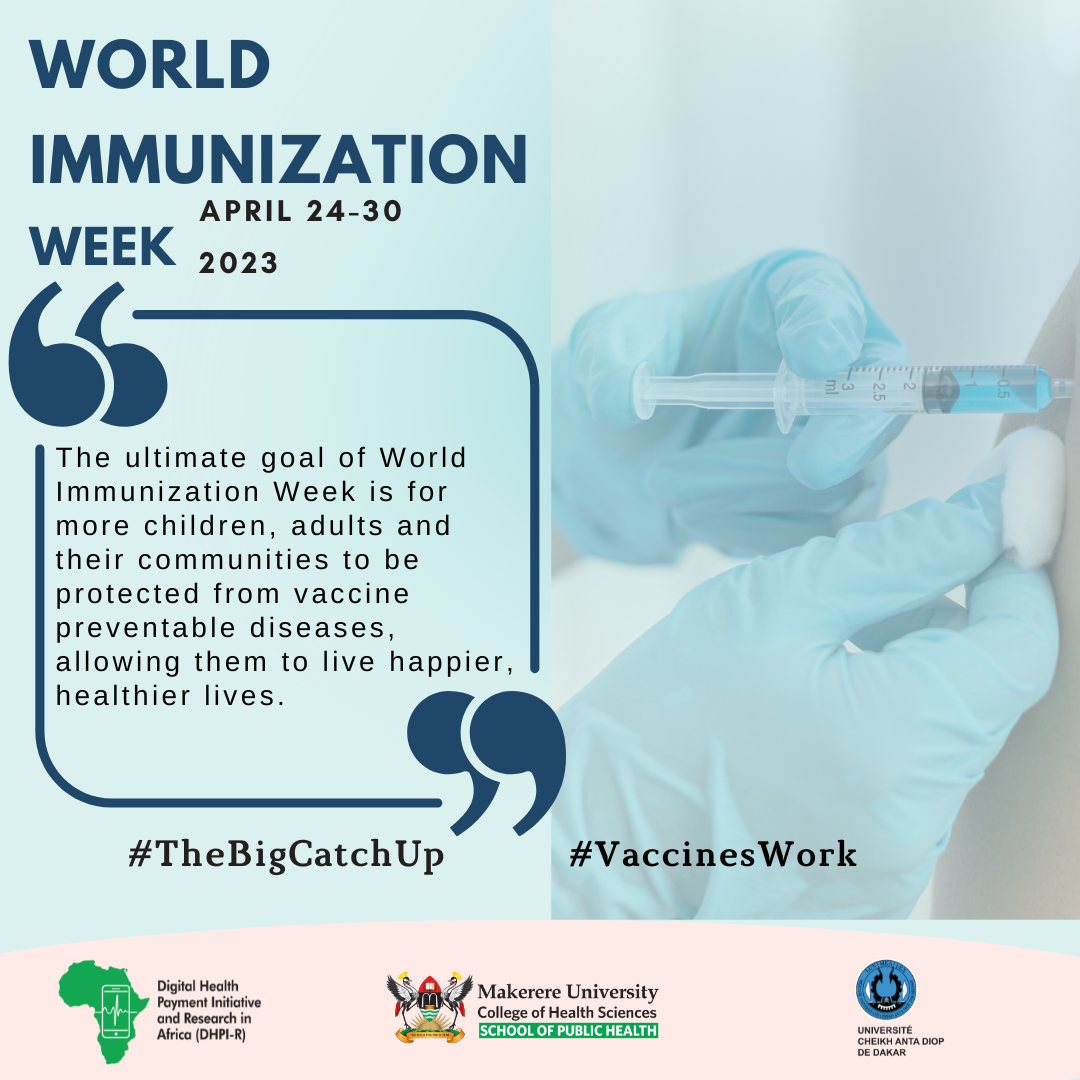As we reflect on the benefits of immunization over the years, it's important to appreciate and acknowledge the value of the human resources involved in the delivery of immunization services and to ensure that they are motivated and equipped to perform their duties diligently. In the past, there have been challenges of untimely payments of campaign healthcare workers associated with the cash payment system that has often resulted to dissatisfaction and demotivation of healthcare workers. As a means to restore essential immunization coverage and strengthen primary health care to deliver immunization services, digitalizing payments for healthcare workers is paramount. As Africa embraces the transition to digital financial solutions for health, there is need to understand the dynamics surrounding E-cash payments. Through the DHPI-R project, 25 studies have been supported to this cause. Fifteen of these studies are in their final stages of production. Emerging findings from the studies present opportunities and challenges in the implementation and uptake of digital payments. One of our studies, that focused on a landscape analysis of the local context, challenges, and opportunities for digitized health worker payments was conducted in eight countries in Sub-Sharan Africa, revealed that digital payments were highly acceptable and widely used across programs including immunization campaigns – mainly through mobile money & Bank systems. In a study on the Adoptability of Digital Payments for payment of Community Health Workers in Wakiso district, Uganda, 98.0% (147/150) community health care workers had ever received payments through mobile money and most of the community Health workers in Wakiso district intend to adopt digital systems to pay for health activities. Reported benefits of digital were safety of money, increased transparency, timely accountability, convenient, efficient and cost-effective means of payments. In another study of us based in Malawi, we found that digital payments increase access to financial services among unbanked health workers and community health workers. Moreover, financial empowerment has also been reported among female health workers as well as improved household relationships associated with digital payments. However, digital payments in hard-to-reach and rural areas are constrained by poor internet connectivity, lack of adequate, mobile money agents with sufficient capital and limited access to mobile withdrawal centers. Despite sub-optimal mobile network penetration in rural areas and other barriers such as high extra operation costs and long personal data verification processes. The use of mobile money payment systems is feasible and opportunities for scaling up exist. These include; legal policy frameworks, political buy in for digital payments, legal policy frameworks, increased phone access, increased network coverage and high use of digital financial services. These studies demonstrate the potential impact of digital payments in improving immunization rates and highlight the need for continued investment in evidence generation around digital payments and translation to policy. By leveraging digital payment systems to support healthcare workers in delivering vaccines, we can work towards achieving universal vaccine coverage and ensuring that no child misses out on the life-saving protection that vaccines offer.
#WorldImmunizationWeek #WIW2023 #VaccinesWork #TheBigCatchUp #DigitalPayments #Campaigns.
